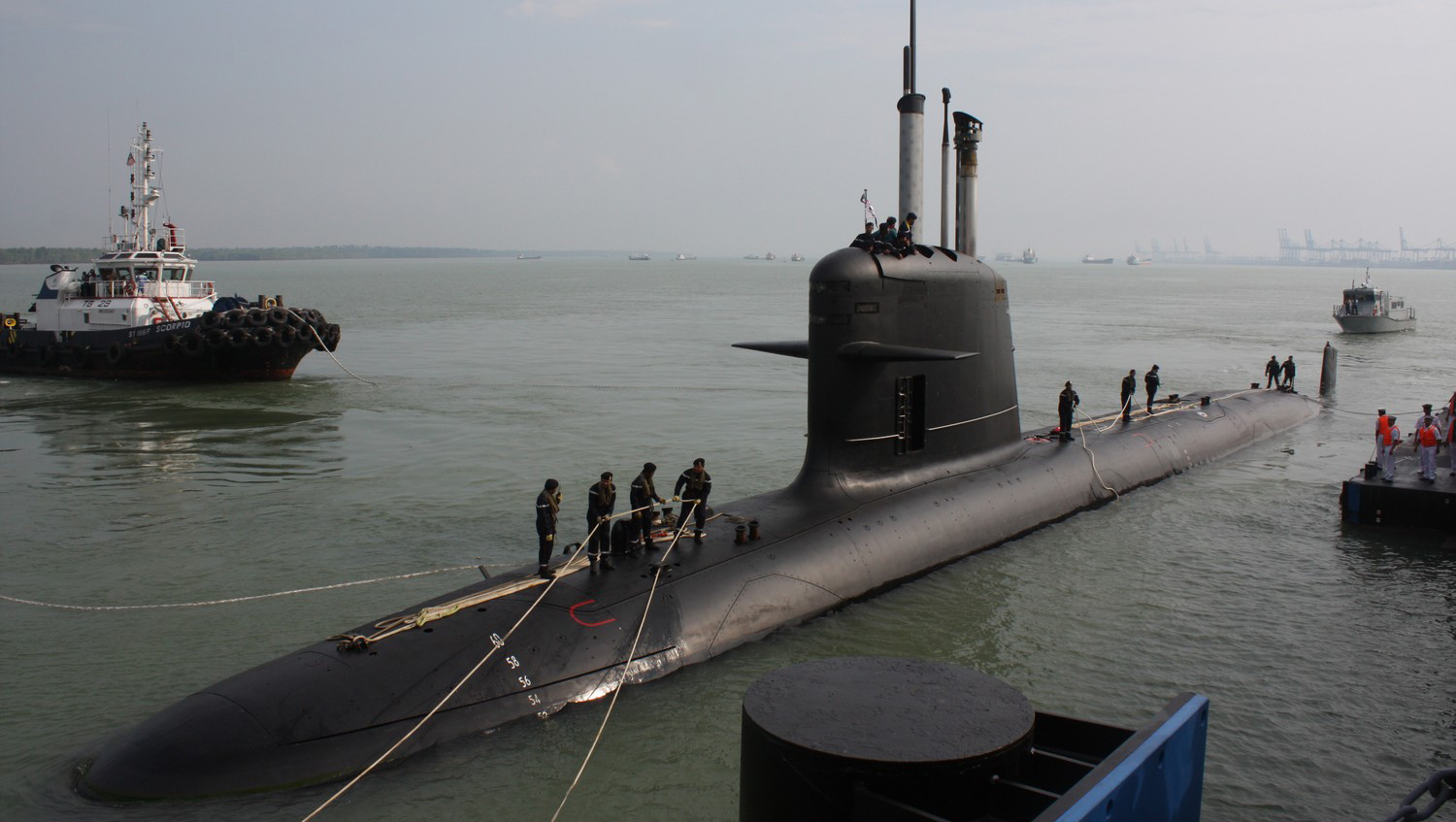French submarines spring a security leak
Investigations underway to find out how secret details of operating capabilities were leaked


More than 22,000 pages of secret operating documents for Indian submarines have been leaked, prompting concerns over the security of the vessels and questions about how such a massive data breach could have happened.
The French Scorpene submarines are being built in a state-run shipyard in Mumbai for the Indian navy, with the first vessel expected to be in service by the end of this year, according to Reuters. However, it is thought the 22,400 documents involved were in fact stolen in 2011.
In a statement to the press, Indian defence minister Manohar Parrikar said: "I understand there has been a case of hacking ... we will find out what happened."
In an additional statement, the Indian Defence Ministry said: "The available information is being examined ... and an analysis is being carried out by the concerned specialists. It appears the source of the leak is from overseas and not in India."
A spokeswoman for DCNS, which is building the six submarines and 35% owned by technology and engineering giant Thales, said that "for now [DCNS doesn't] know if the information is correct".
Reuters added that the level of detail in the documents "creates a major strategic problem for India, Malaysia and Chile", which, according to a source, operate the same model of submarine.
"It's a huge deal ... it allows them to understand everything about the submarines. What speeds it can do; how noisy it is; what speeds the mast can be raised at ... all of that is just devastating," the source told Reuters.
Get the ITPro daily newsletter
Sign up today and you will receive a free copy of our Future Focus 2025 report - the leading guidance on AI, cybersecurity and other IT challenges as per 700+ senior executives
Speaking to IT Pro, Bola Rotibi, research director at analyst house Creative Intellect, said: "That this happened in 2011 goes to show how insecure things were at that time. It's only in the last three or four years that people have really started to double down on security."
The incident, Rotibi said, could be the result of "good old fashioned spying" by a nation-state, but equally it could be "more Machiavellian" industrial espionage-cum-sabotage, particularly as the details of the documents were released. Indeed, this is an allegation hinted at by DCNS.
"The competition is more and more hard and all means can be used in thei context," the company's spokeswoman told Reuters.
"There is [this breach news from] India, [so] Australia and other countries could raise legitimate questions over DCNS. It's part of the tools in economic war," she added.
For Rotibi, however, apportioning blame is less important than preparing for and dealing with breaches.
"Breaches can happen at any level, whether governmental or business," she said. "This case just reinforces two things we have seen over and again in our own research: the need for thorough screening of employees and contractors, to protect against insider threats, and for organisations to have processes in place to prevent, detect and remediate breaches."
Main image credit: Tunku Abdul Rahman, cc license 3

Jane McCallion is Managing Editor of ITPro and ChannelPro, specializing in data centers, enterprise IT infrastructure, and cybersecurity. Before becoming Managing Editor, she held the role of Deputy Editor and, prior to that, Features Editor, managing a pool of freelance and internal writers, while continuing to specialize in enterprise IT infrastructure, and business strategy.
Prior to joining ITPro, Jane was a freelance business journalist writing as both Jane McCallion and Jane Bordenave for titles such as European CEO, World Finance, and Business Excellence Magazine.
-
 Capita tells pension provider to 'assume' nearly 500,000 customers' data stolen
Capita tells pension provider to 'assume' nearly 500,000 customers' data stolenCapita told the pension provider to “work on the assumption” that data had been stolen
By Ross Kelly
-
 Gumtree site code made personal data of users and sellers publicly accessible
Gumtree site code made personal data of users and sellers publicly accessibleNews Anyone could scan the website's HTML code to reveal personal information belonging to users of the popular second-hand classified adverts website
By Connor Jones
-
 Pizza chain exposed 100,000 employees' Social Security numbers
Pizza chain exposed 100,000 employees' Social Security numbersNews Former and current staff at California Pizza Kitchen potentially burned by hackers
By Danny Bradbury
-
 83% of critical infrastructure companies have experienced breaches in the last three years
83% of critical infrastructure companies have experienced breaches in the last three yearsNews Survey finds security practices are weak if not non-existent in critical firms
By Rene Millman
-
 Identity Automation launches credential breach monitoring service
Identity Automation launches credential breach monitoring serviceNews New monitoring solution adds to the firm’s flagship RapidIdentity platform
By Praharsha Anand
-
 Neiman Marcus data breach hits 4.6 million customers
Neiman Marcus data breach hits 4.6 million customersNews The breach took place last year, but details have only now come to light
By Rene Millman
-
 Indiana notifies 750,000 after COVID-19 tracing data accessed
Indiana notifies 750,000 after COVID-19 tracing data accessedNews The state is following up to ensure no information was transferred to bad actors
By Rene Millman
-
 Pearson fined $1 million for downplaying severity of 2018 breach
Pearson fined $1 million for downplaying severity of 2018 breachNews The SEC found the London-based firm made “misleading statements and omissions” about the intrusion
By Rene Millman

